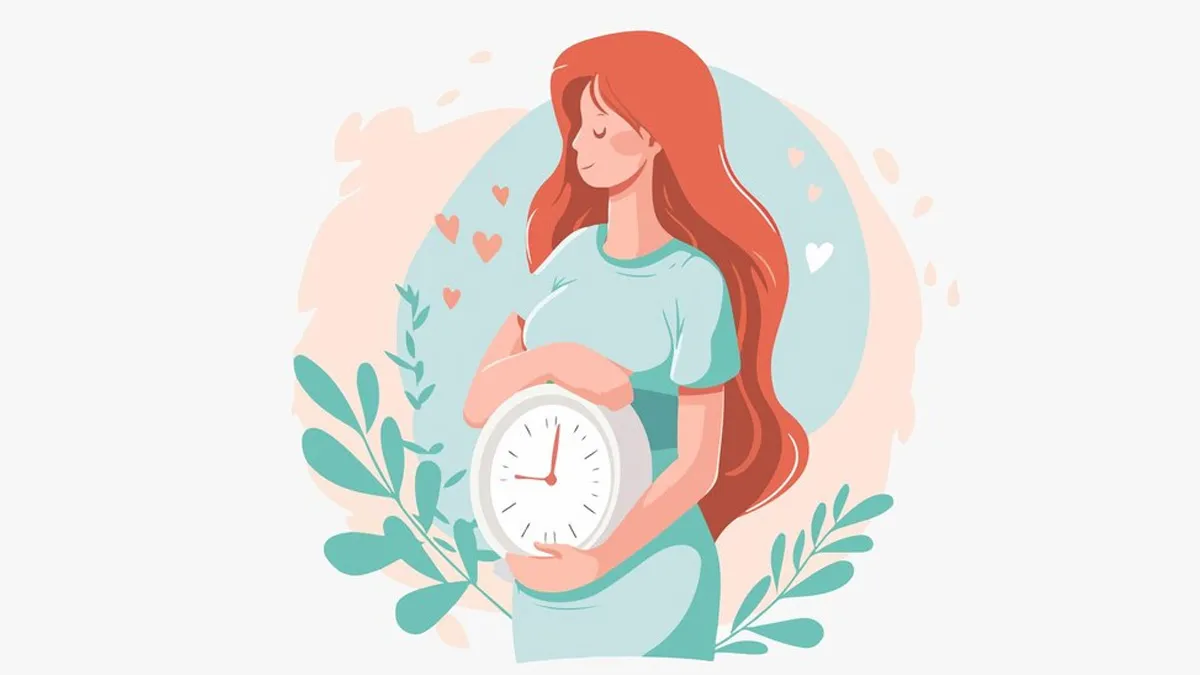
Inside every cell, there is a tiny yet powerful timekeeper that keeps track, known as the biological clock. This internal mechanism doesn't count years; it calculates just how properly the body defends and repairs its DNA. Many people believe that the biological clock is only about age, but it's actually much more than that. It reflects how healthy and resilient our cells are, and how well our body protects its DNA from daily wear and tear.
Table of Content:-
In an exclusive interaction with the editorial team of Onlymyhealth, our expert, Dr Devyani Mukherjee, Fertility Specialist, Birla Fertility & IVF, Rajouri Garden, Delhi, explained, “The body constantly works to repair damaged DNA. But pollution, stress, lack of sleep, smoking, processed foods, and excessive alcohol all put the brakes on this repair system. Over time, wear and tear accelerate cellular ageing, affecting everything from energy levels to skin health and even fertility.” However, simple everyday lifestyle choices can strengthen this internal repair system.
Eat For Cellular Strength: Fresh, Unprocessed and Colourful Foods
Nutrition provides the very basis for DNA protection. Foods high in antioxidants-primarily fruits, vegetables, nuts, seeds, and whole grains-neutralise free radicals, unstable molecules that can cause cellular damage and accelerate ageing.
Also Read: Does Pore Size Really Matter For Healthy Skin and Can You Shrink Them? Expert Shares

According to Dr Mukherjee, "When fresh, unprocessed foods are consumed, the body becomes better at repairing and renewing cells. Nutrient-rich foods supply antioxidants to help neutralise free radicals-unstable molecules that can damage DNA and speed up cellular ageing."
A plate piled high with leafy greens, berries, citrus fruits, tomatoes, turmeric, green tea, and omega-3-rich foods such as walnuts or flaxseeds naturally creates an anti-inflammatory effect. It even includes swapping sugary snacks for fruits or homemade meals for packaged ones to build cellular resilience over time.
Sleep: The Invisible Repair Process
Sleep isn't inactivity; it's a form of repair work. In deep sleep, the body eliminates toxins, repairs tissues and restores hormonal balance. Additionally, when there is a regular pattern of late nights, the process is disrupted, inflammation sets in, and cellular ageing accelerates.
Setting a regular sleep-wake schedule, limiting pre-sleep screen time, and engaging in relaxing evening activities, such as reading or sipping herbal teas, promotes a higher quality of sleep and healthier DNA.
Movement Boosts Regeneration
Excessive sitting slows metabolism and interferes with cell renewal, whereas moderate activity improves blood flow, enabling cells to receive more oxygen and nutrients.
As Dr Mukherjee put it, “Simple, steady habits go a long way, walking regularly, exercising three to four times a week, staying hydrated, and managing stress through activities like yoga or hobbies.” Even a 30-minute brisk walk can trigger cellular repair pathways and reduce inflammation.

Hydration Helps Cells Function Smoothly
Water plays an underrated role in DNA protection. Adequate hydration facilitates digestion and helps detoxify the body while maintaining optimal cell function. Replacing sugary drinks with plain water, infused water, or herbal teas can reduce oxidative stress and help maintain cellular balance.
Also Read: Sound Sensitivity During Menopause? Twinkle Khanna Shares Her Experience of Misophonia
Stress Management
Chronic stress bathes the body in cortisol, a hormone that promotes inflammation and accelerates cellular ageing. Relaxation techniques buffer the negative impact of stress on DNA.
Mindfulness practices include deep breathing, meditation, yoga, and hobbies that maintain emotional balance. Moments of calm are powerful, as they reduce oxidative stress at the cellular level.
Avoid Smoking and Excess Alcohol
Tobacco smoking contains chemicals that directly cause damage to DNA and decrease the capacity of an organism to repair it. At the same time, frequent consumption of alcohol produces toxins in the liver, inducing inflammation and oxidative stress. Avoiding or minimising these substances spares DNA and slows internal ageing.
Bottomline
Healthy DNA isn't just inherited, it's maintained through consistent lifestyle habits that support nourishment, movement, rest, and emotional balance. As Dr Mukherjee concluded, "Simple, steady habits help cells recover and regenerate, protect DNA, and support long-term well-being. Small steps today can truly shape a healthier tomorrow."
Also watch this video
FAQ
1. What is DNA biological ageing?
Biological ageing refers to the internal cellular ageing rate, driven by DNA repair, inflammation, and oxidative stress, rather than your chronological age.2. Can lifestyle changes really slow biological ageing?
Yes. Healthy habits, such as a nutritious diet, regular exercise, and sufficient sleep, consistently support DNA repair mechanisms, decrease inflammation, and enhance cellular resilience.3. How long does it take for the results of lifestyle modifications to manifest?
Internally, positive changes may begin within weeks, while noticeable improvements in energy, skin health, and overall wellness build up more gradually with consistency.
How we keep this article up to date:
We work with experts and keep a close eye on the latest in health and wellness. Whenever there is a new research or helpful information, we update our articles with accurate and useful advice.
Current Version
Nov 10, 2025 17:13 IST
Published By : Tanya Srivastava
